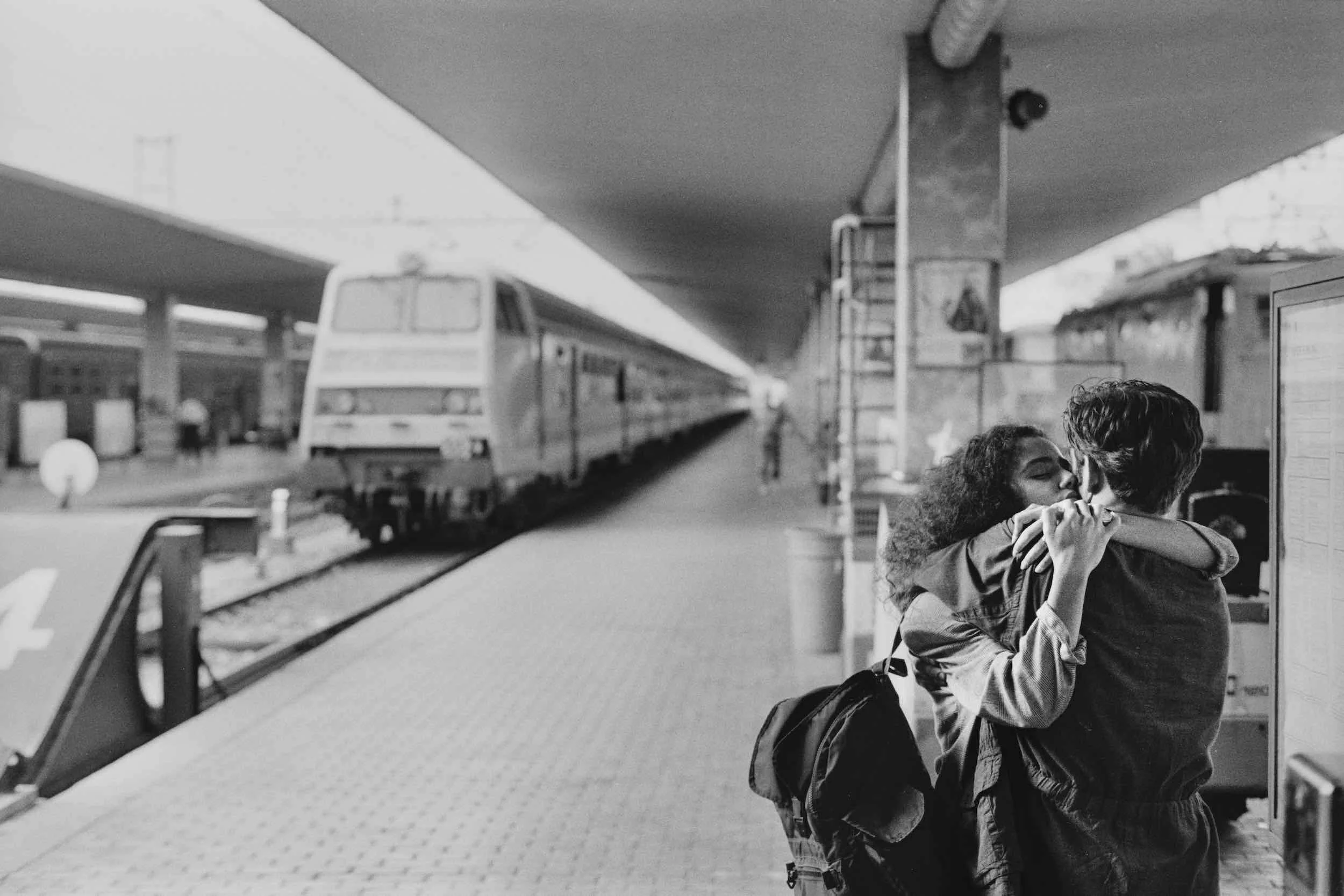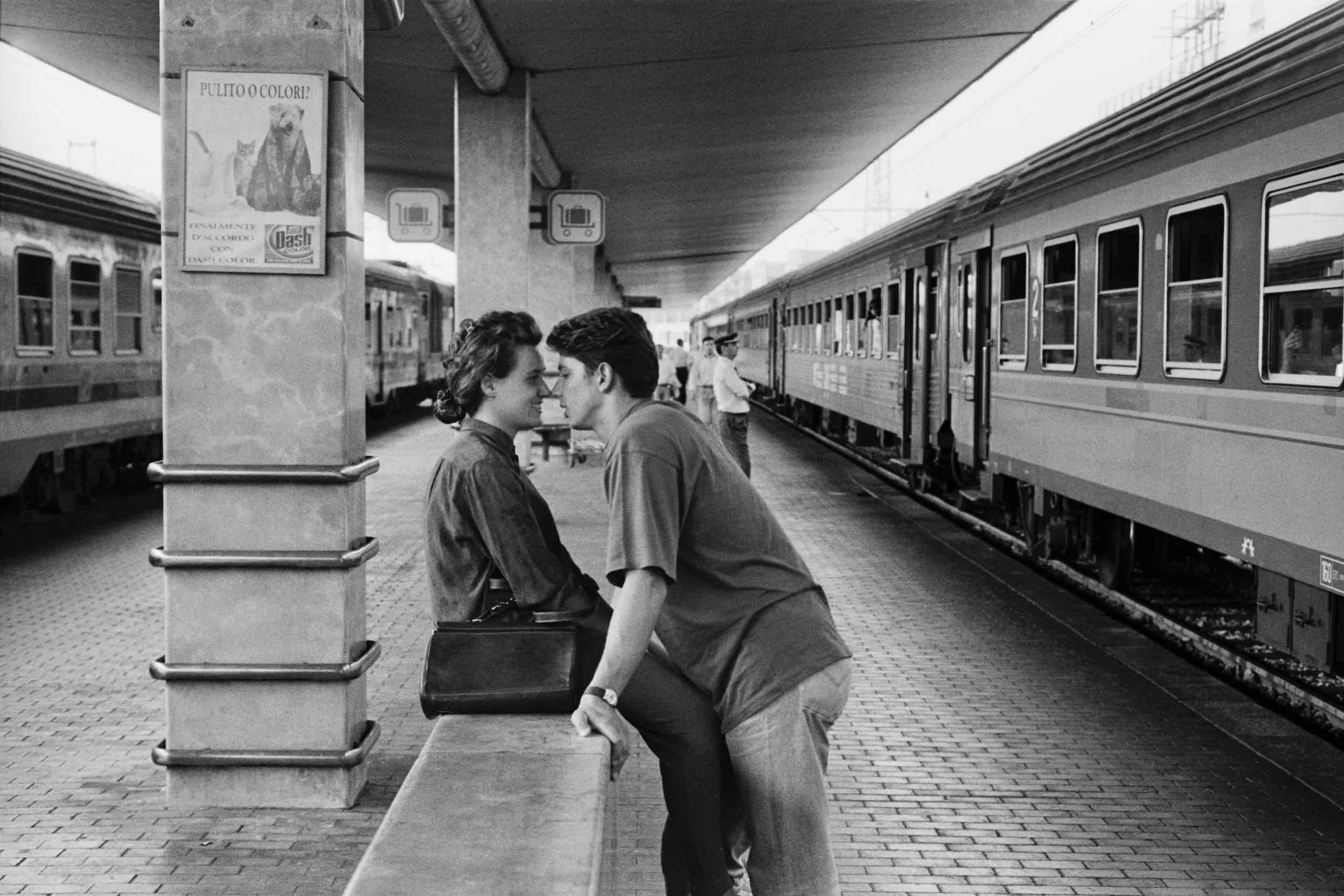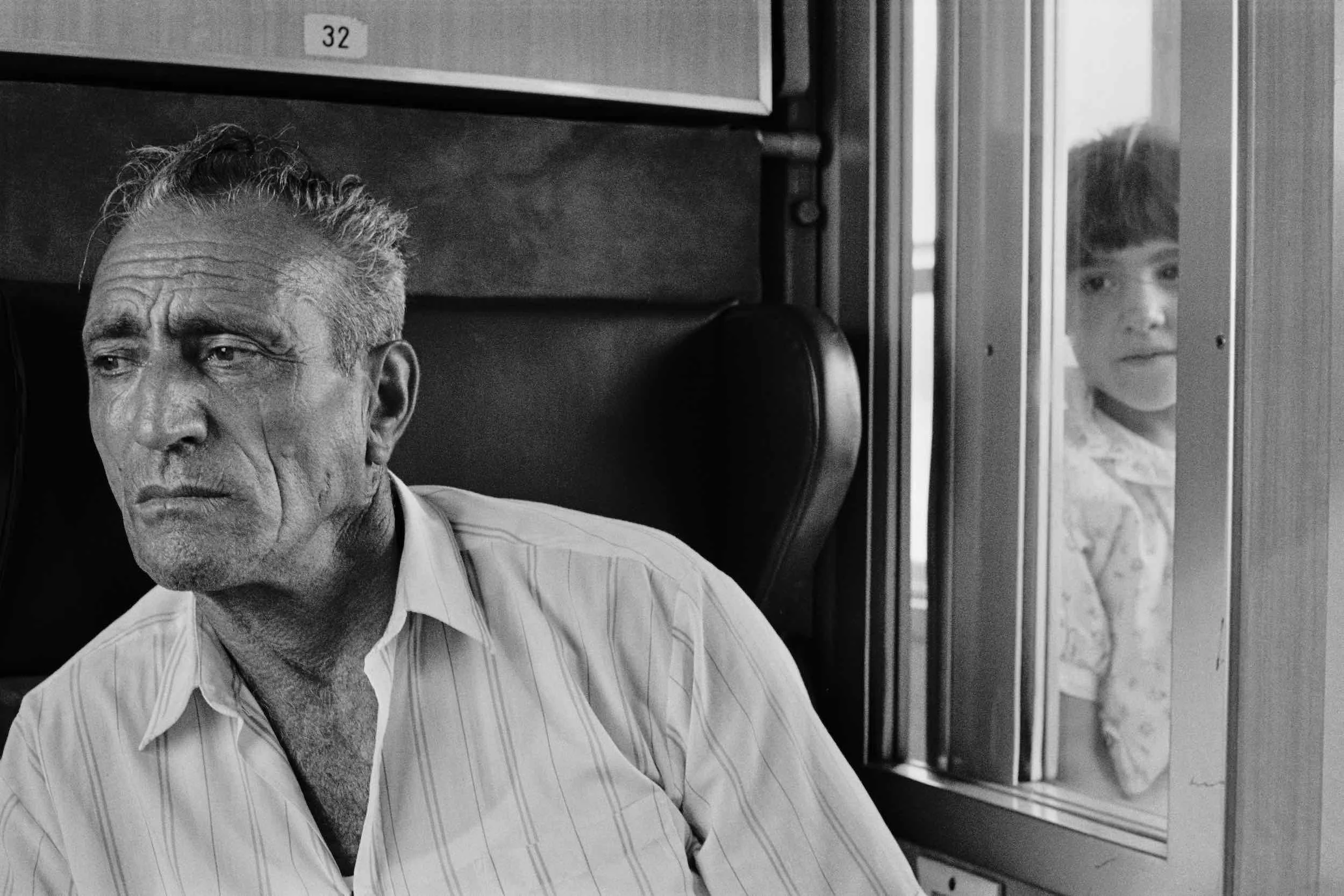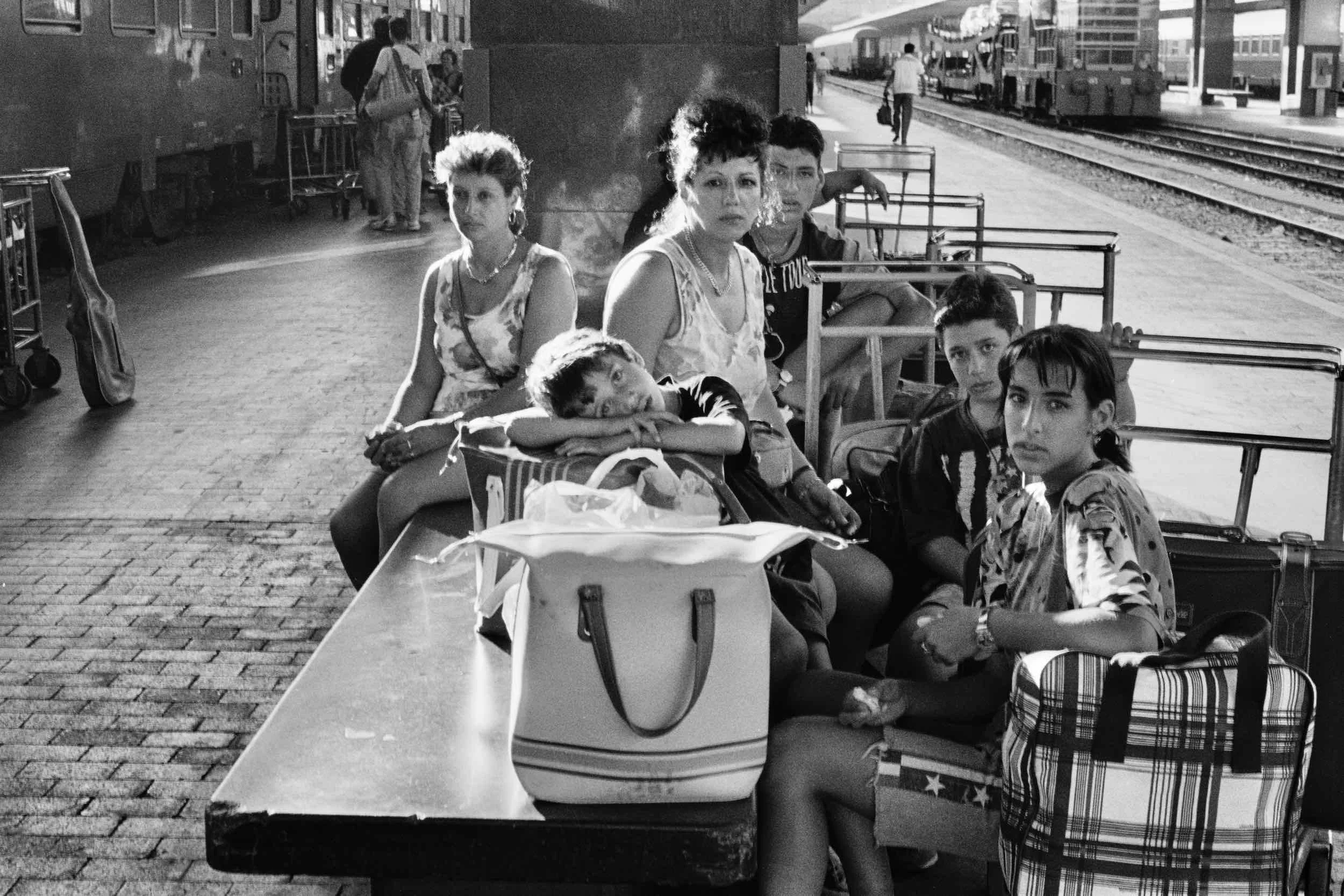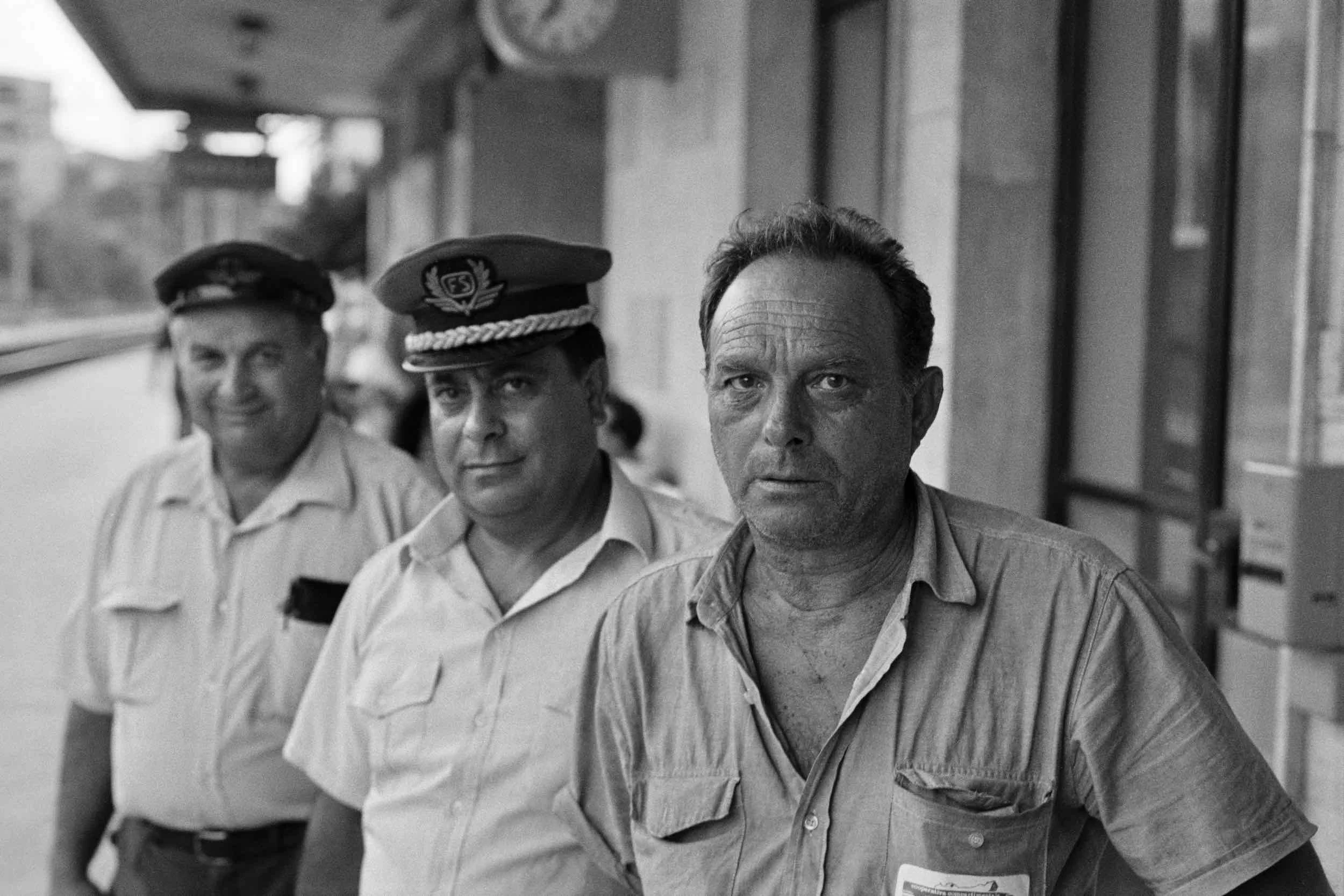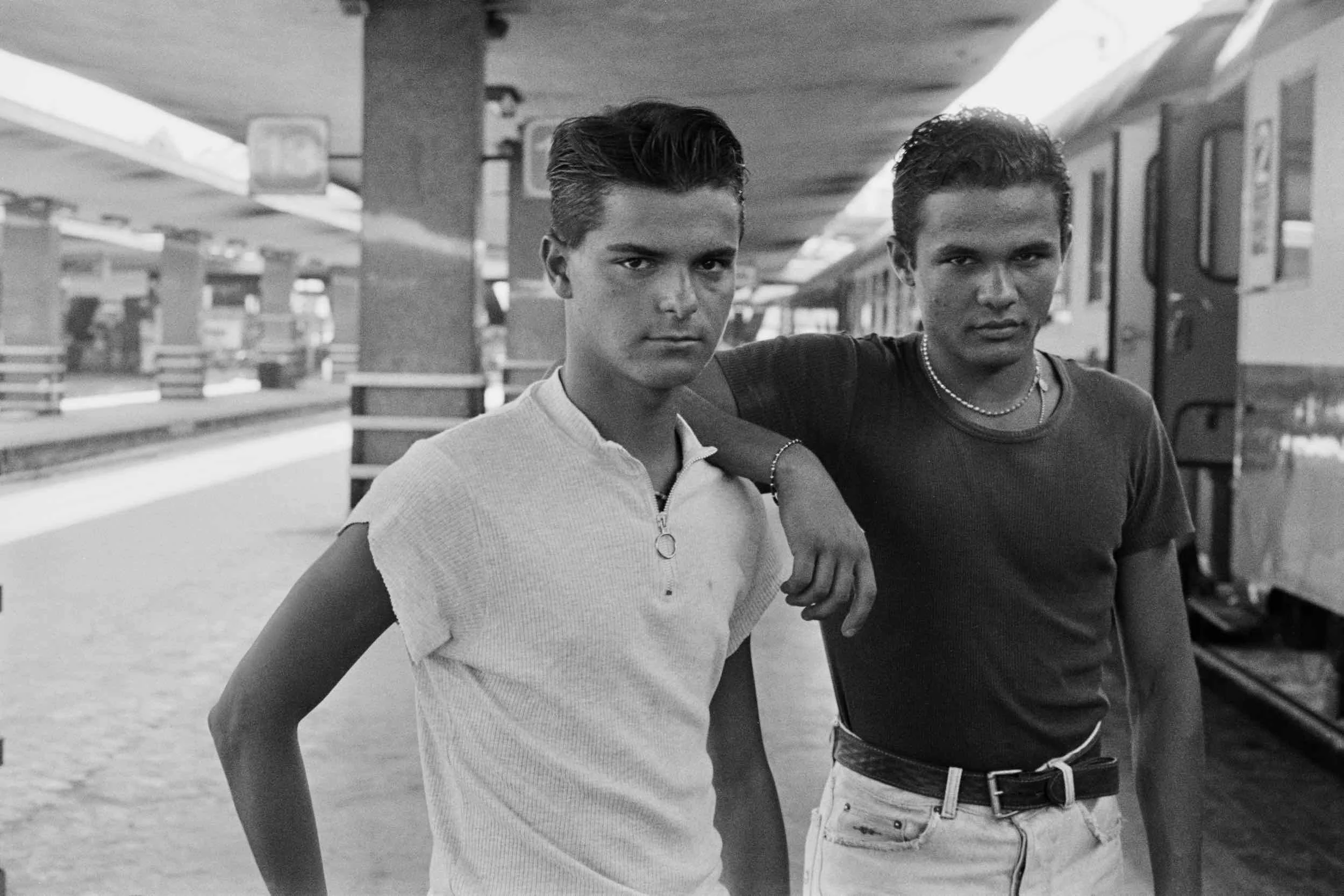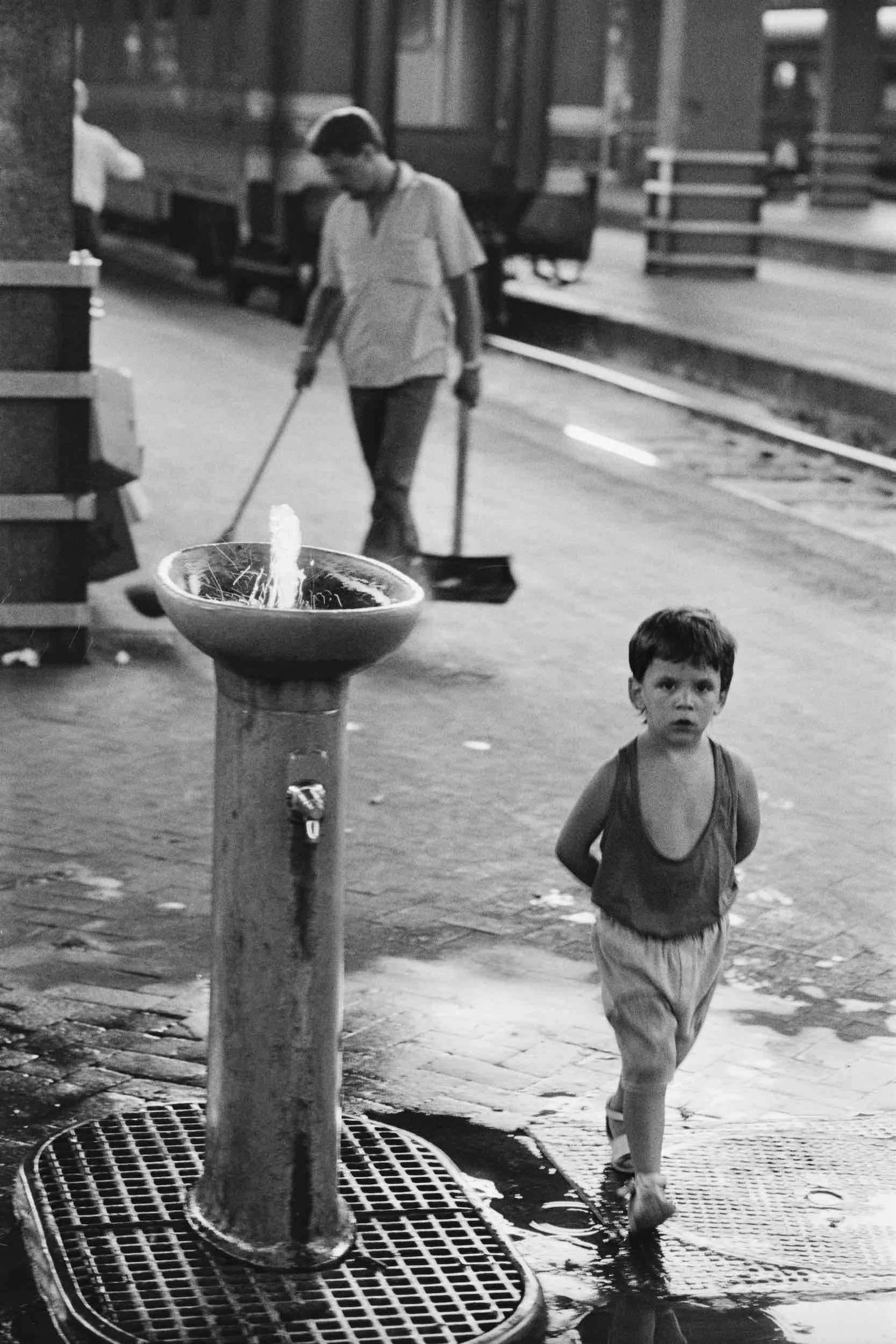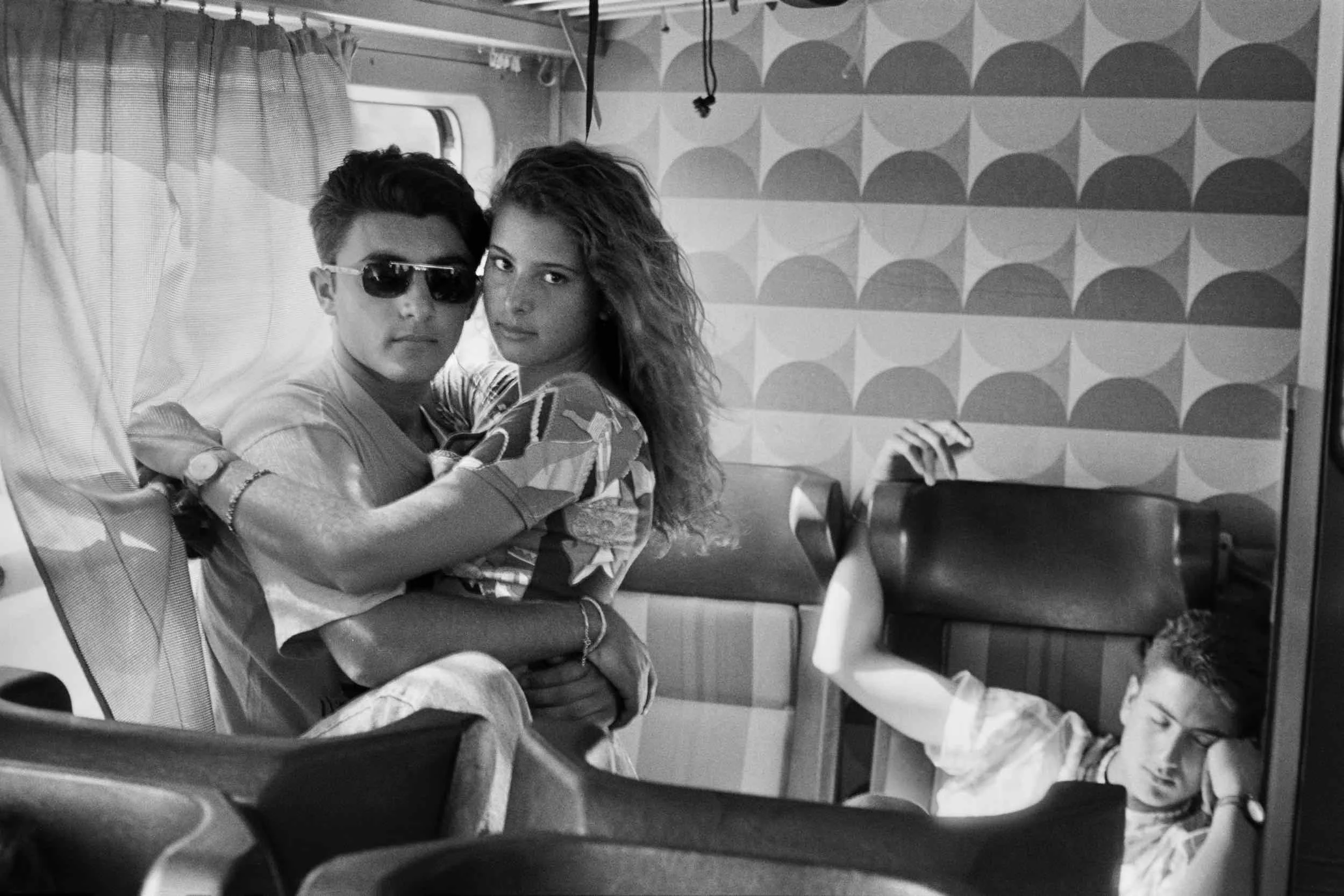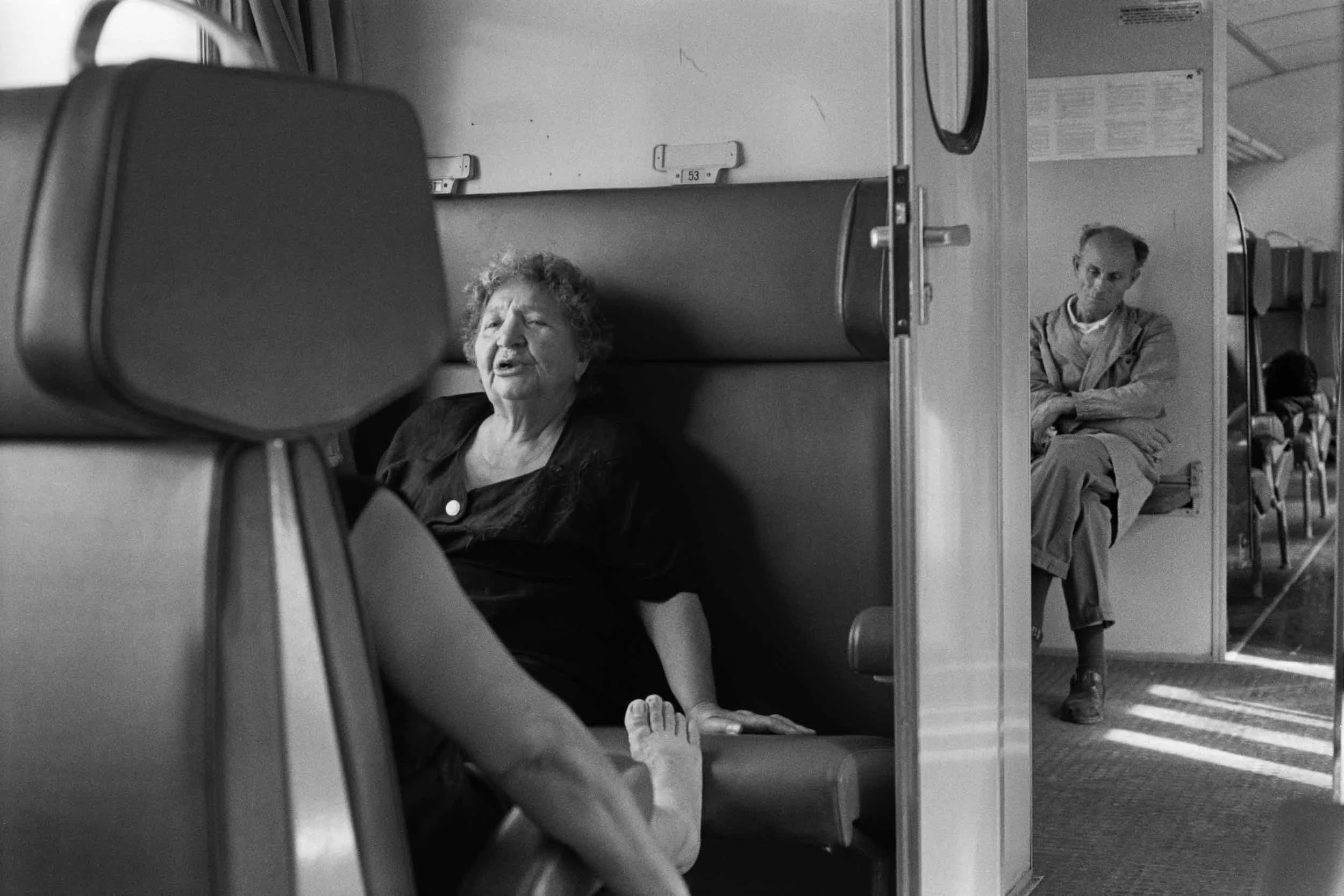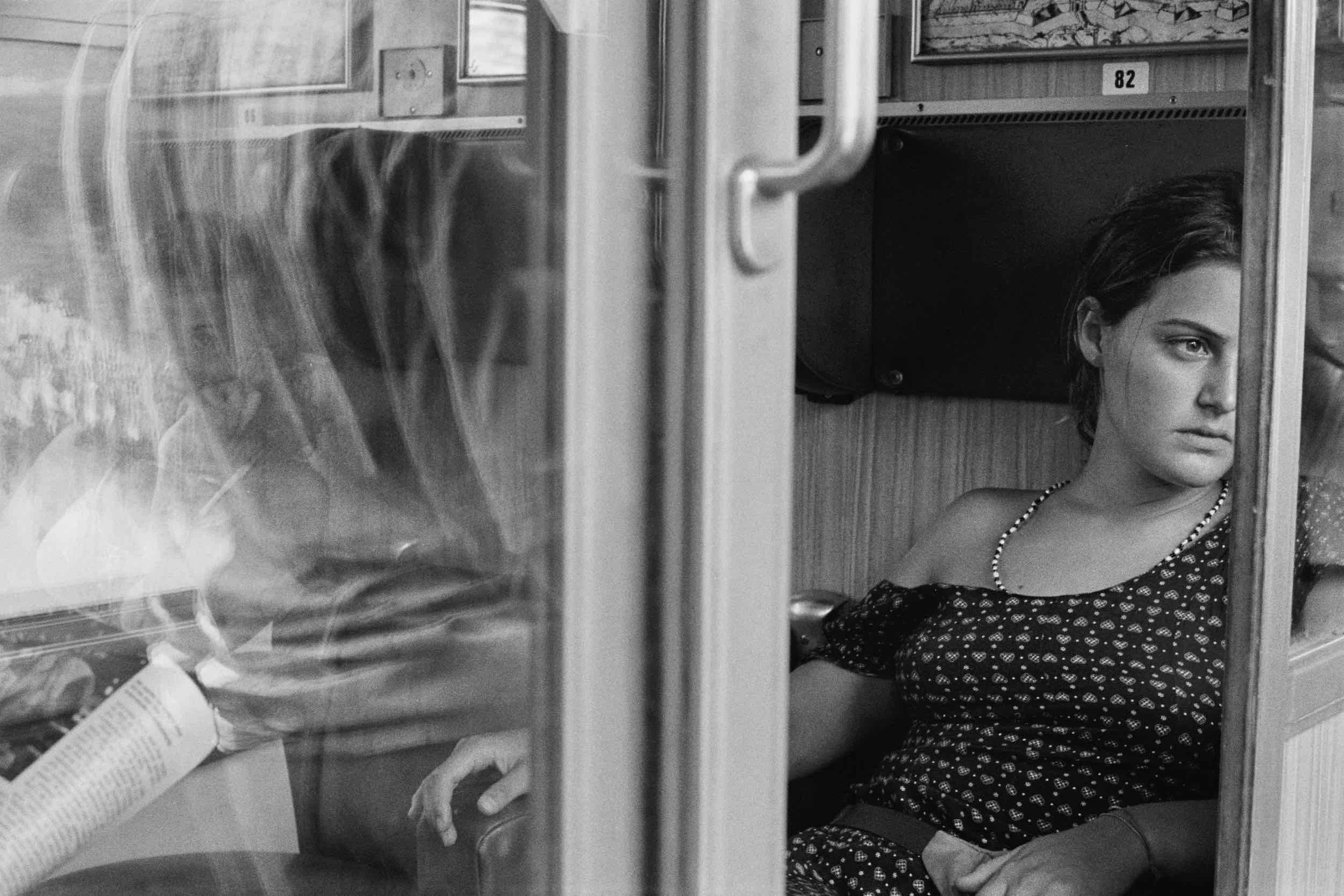Travelers of Another Time
In August 1992, shortly after graduating from a photography school in Brussels, and fueled by my fascination with Italy and its cinema, I decided to explore "the bel paese” in a personal way as if it were a character to be discovered.
I boarded the first train to Florence, then to Rome, and ventured further south to Naples, Reggio Calabria and finally Sicily. During the long hours of travel and waiting on platforms, I began photographing the fleeting faces from station to station, carriage to carriage.
The trains and platforms served as a stage for a remarkable cross-section of humanity—travelers and railway workers of all ages and backgrounds. Amid this flow of features, expressions and Mediterranean warmth, I began my casting. Inspired by Italian cinema, I invited each subject to step into the frame as if onto a stage, like actors in an unwritten film. My camera sought to capture the essence of their being, and the quiet humanity that shone in that fleeting moment.
The Italy I photographed is full of piercing yet innocent gazes, reminiscent of the black-and-white films of Neorealism. My subjects weren’t performing for 'likes' or 'followers'; they met the camera openly, offering their full humanity—before the glow of screens began to steal our eyes from one another.
Only thirty years have passed… yet it feels much longer. Today, platforms in major cities are accessible only with a train ticket, and high-speed trains no longer allow open windows to feel the air or engage with what is outside. Back then, both the freely accessible stations and the open windows offered moments of human connection—a small but telling sign of how much our lives, and the ways we encounter one another, have changed over the past three decades.
So what has changed in us over these years? Something has undeniably shifted—but what and why? Perhaps the answer lies in the gazes of these travelers and railway workers, witnesses to a world that did not yet know smartphones, social media and the rules that now quietly restrict our movements and encounters, all in the name of security.
